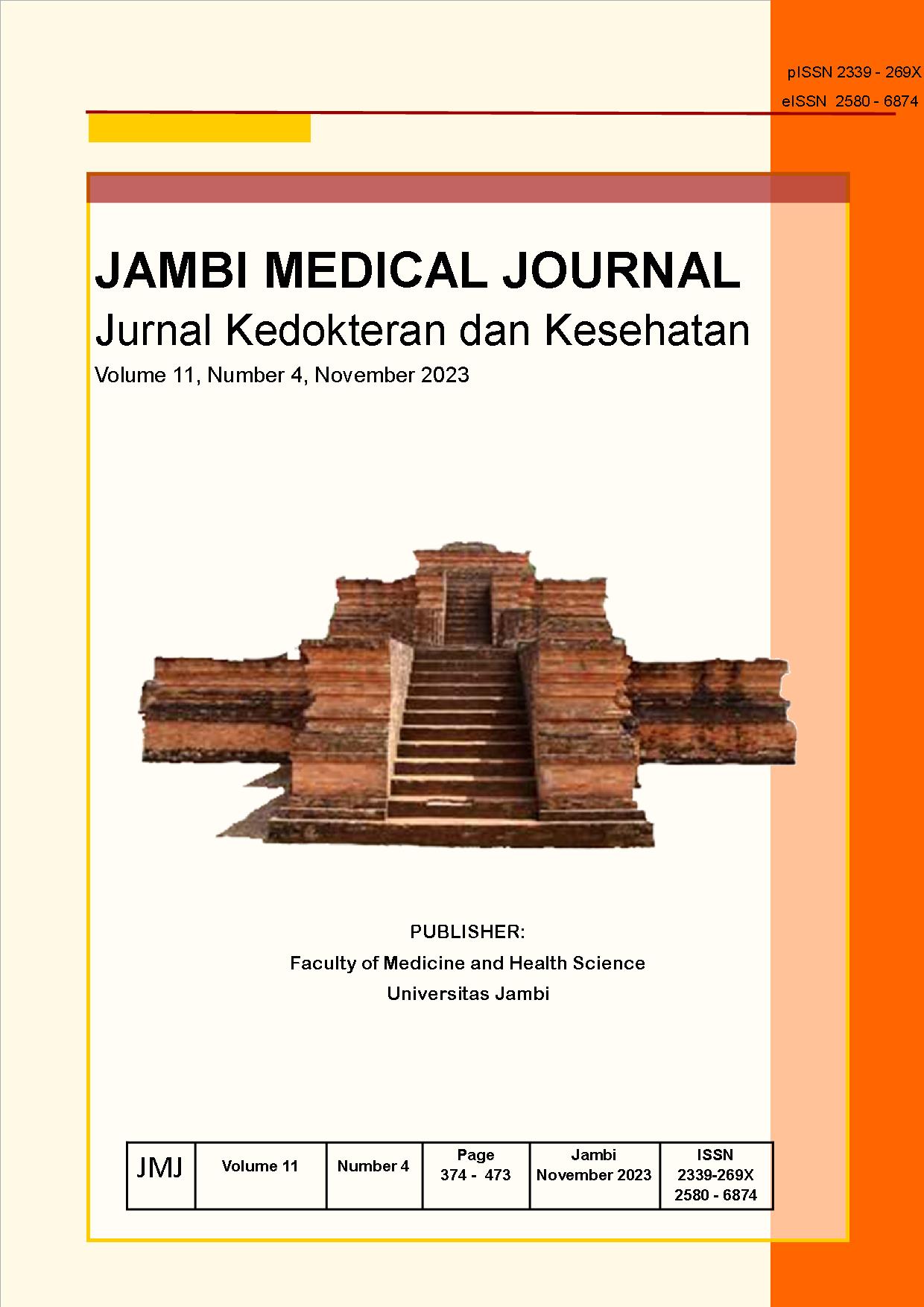Pituitary Apoplexy Induced by Anticoagulant Therapy in Patient with Acute Coronary Syndrome
DOI:
https://doi.org/10.22437/jmj.v11i4.27776Abstract
Pituitary apoplexy, defined as bleeding or infarct on pituitary gland which often occurs in undiagnosed pituitary tumour. Some of the mechanisms thought to trigger pituitary apoplexy are fluctuations in blood pressure, hormonal stimulation of the pituitary gland, coagulation disorders or vascular disorders.
We reported the case of a male patient, aged 73 years from India who came to the emergency department with complaints of chest pain in the last four hours. Electrocardiographic (ECG) and laboratory examination results lead to an acute coronary syndrome (ACS) event. Patients are given blood thinners in the form of fondaparinux, aspirin, and clopidogrel. On the 4th day of hospitalization, the patient experienced a severe headache, projectile vomiting, and double vision. Radiological examination reveals a pituitary tumour with signs of diffuse haemorrhage compressing the optic chiasma, suggesting an apoplexy of a pituitary tumour. Hormone function tests show a non-functioning pituitary tumour. The blood thinners were discontinued, then vitamin K and dexamethasone were given to reduce the patient's symptoms. After a few days, the headaches and double vision began to improve. Another MRI of the head was done and the result shoed that the mass remained the same and the bleeding did not expand.
It is known that patients with pituitary tumors are at risk of experiencing bleeding after administration of blood thinners. The presence of a pituitary tumour may be a relative contraindication to the use of dual antiplatelets and anticoagulants in acute coronary syndromes especially in group with renal or liver comorbidities.











